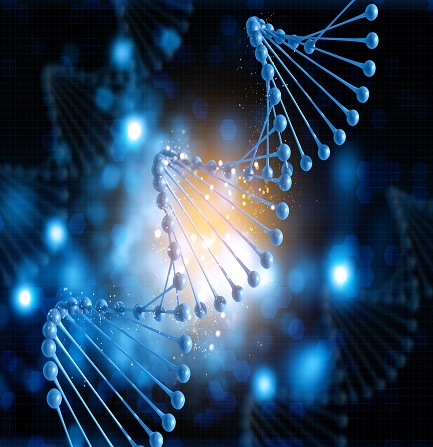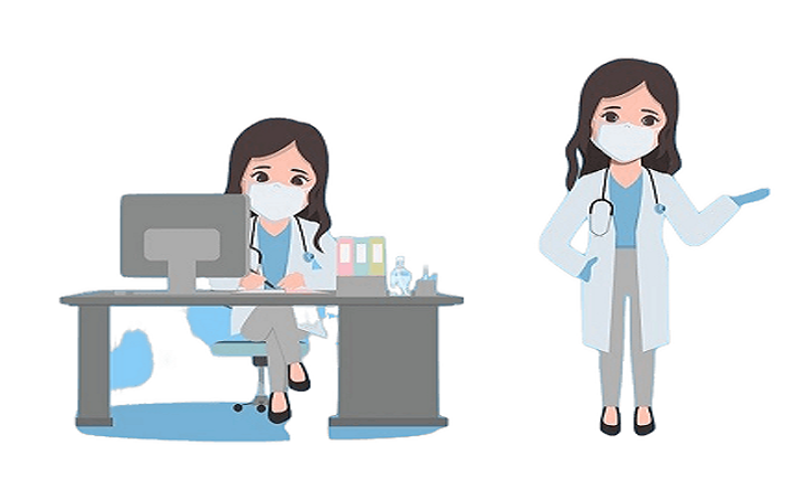What is Genomics?
Genomics is the study of all or part of the genetic or epigenetic sequence information of an organism, seeking to understand the structure and function of these sequences and downstream biological products. Genomics in Health studies molecular mechanisms and the interplay of environmental factors in this molecular information, health interventions, and disease. Human genomics is not the only part of genomics relevant to human health. The human genome interacts with the genomes of a variety of other organisms, including plants, vectors, and pathogens. Genomics is considered relevant to public health in human populations of all organisms. In addition to genome knowledge, we are also considering technologies that utilize genome knowledge.
Genomics is different from genetics. Genetics is the study of heredity, whereas genomics is defined as the study of genes, their functions, and related technologies. The main difference between genomics and genetics is that genetics studies the function and composition of individual genes whereas genomics addresses all genes and their interrelationships and their combined effects on the growth and development of an organism to identify significant impacts.
What is the Potential of Genomics in Public Health?
The role of human genomics and related biotechnology has the potential to achieve various public health goals, including placing a
burden on the population.
Genomics is a rapidly evolving new scientific field, and the future role of genomics in healthcare delivery is not entirely clear. However, it offers long-term opportunities to provide new approaches to the prevention and treatment of many intractable diseases. It is therefore important to prepare society for the complexities of this new field so that its benefits are fairly distributed among the nations of the world and that tried and tested conventional approaches in medical research and practice are not neglected. The medical potential of genomics is being explored.
5 ways genomics influences our world
1. DNA Sequencing - DNA sequencing refers to a common laboratory technique that determines the exact sequence of nucleotides or bases in a DNA molecule. The sequence of bases (often denoted by the first letter of the chemical name: A, T, C, and G) encode the biological information that cells use to develop and function.
2. Human Genomic Variation - Between two humans, the genetic variation (biochemical individuality) is about .1 percent. This means that about 1 base pair out of 1,000 differs between the two individuals.
3. Cancer Genomics - Simply put, cancer is a genomic disease. It occurs when cells grow and divide uncontrollably due to changes in the human genome (DNA). These genomic changes (variants) can be inherited from a parent or acquired at some point in life.
4. Genomes at work - When scientists started the Human Genome In the project, they didn't even know how many genes the human genome contains. Then it was a big surprise to learn that humans only need about 20,000 genes! Those about 20,000 genes are encoded by less than 2% of our genome.
5. Rare Genetic Disease - Genetic studies have shown that there are four distinct ancestral groups in mainland India, and separate lineages in the Andaman and Nicobar Islands. The Indian population comprises over 4000 anthropologically diverse groups speaking over 300 languages, suggesting that linguistic stratification is strongly associated with the geographic niches of each subgroup increase.
Types of genomics
People study and experiment with genomics for a variety of purposes. Here are some examples of different types of genomics:
1. Structural genomics: It aims to determine the structure of each protein encoded by the genome.
2. Functional genomics: It aims to collect and use data from sequencing to describe the function of genes and proteins.
3. Comparative genomics: The aim is to compare genomic characteristics between different species.
4. Mutational genomics: Examines a person's genome for mutations that occur in her DNA or genome.
Uses of genomics:-
Human genetics has many applications in medicine, biotechnology, anthropology, and other social sciences. In medicine, next-generation genomics technologies will enable the collection of larger amounts of genomic data. Combining this data with informatics enables the integration of all this information. This will allow researchers to better understand drug-disease responses based on genetics, and will also aid in personalized medicine efforts. Mapping the human genome is time-consuming and generates terabytes(TB) of uncoordinated data. As technology advances and it becomes easier to store and understand this data, more healthcare providers will use this data to diagnose and treat patients and support clinical decision-making.
The efficiency of genome sequencing has advanced. At Nationwide Children's Hospital in Columbus, Ohio, it took him a week to analyze the same dataset studied over 18 months in the 1,000 Genomes Project. This project is the first to sequence the genomes of large groups and may be useful for population health management. Some pilot projects aim to integrate genomics capabilities into the provider's electronic health record (EHR) system. Genomics is considered part of personalized or precision medicine. This is a medical model in which providers tailor treatment to each patient's needs and genetic makeup.
How does Genomics relate to global inequality?
Affected by this global health imbalance, genomics is currently undergoing a major divide that is impeding progress in genetic science in low- and middle-income countries. Global inequalities in the availability, quality, and use of genetic engineering, genomics research, and the provision of genomics services are growing for a variety of reasons. These include a lack of financial resources, lack of health services and infrastructure, or the existence of more compelling health priorities, as in the case of infectious diseases such as tuberculosis and HIV/AIDS. Genome-related technologies can help improve global health equity.
Achieving this will require the containment and eventual closing of genomic health gaps through equitable economic investments, clinical research, and the provision and use of genomic services and technologies around the world. Sharing existing information, expertise, and technology between high-income and low-income countries can accelerate this process. The Human Genetics Program (HGN) provides WHO Member States with a clear understanding of the genomics opportunities and challenges associated with achieving their public health goals.




















 website development.png)












0 Comments
No comment